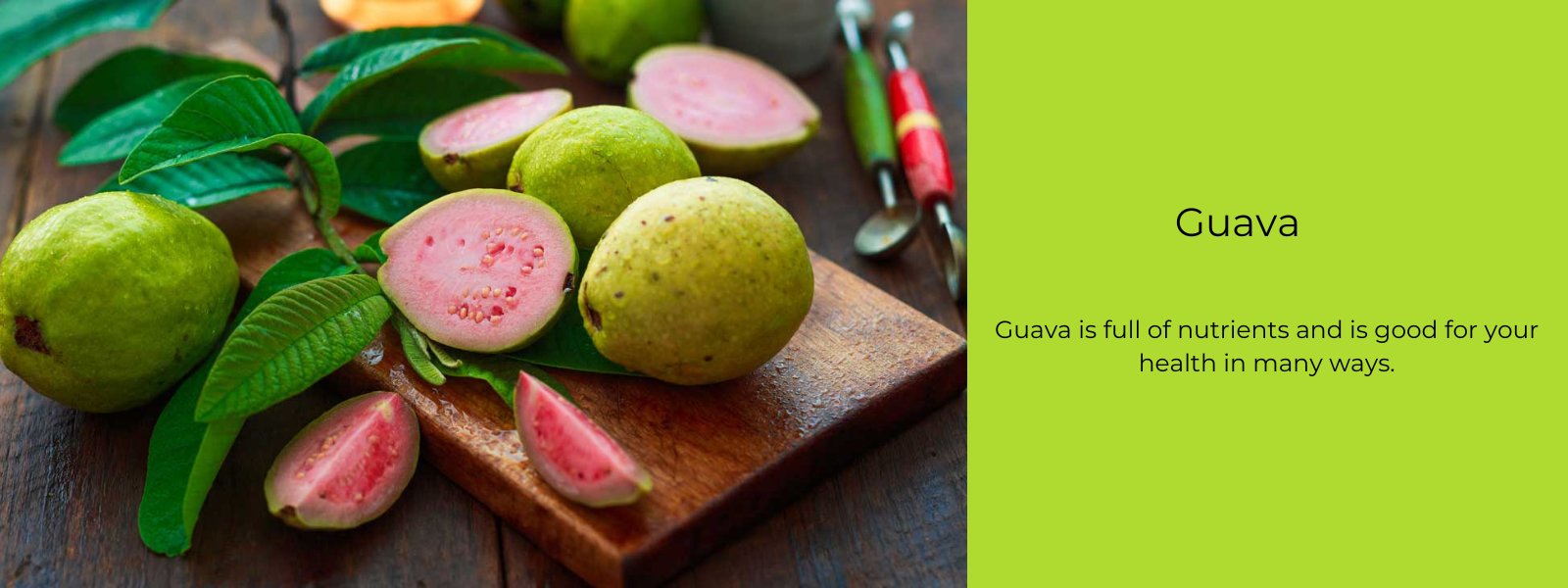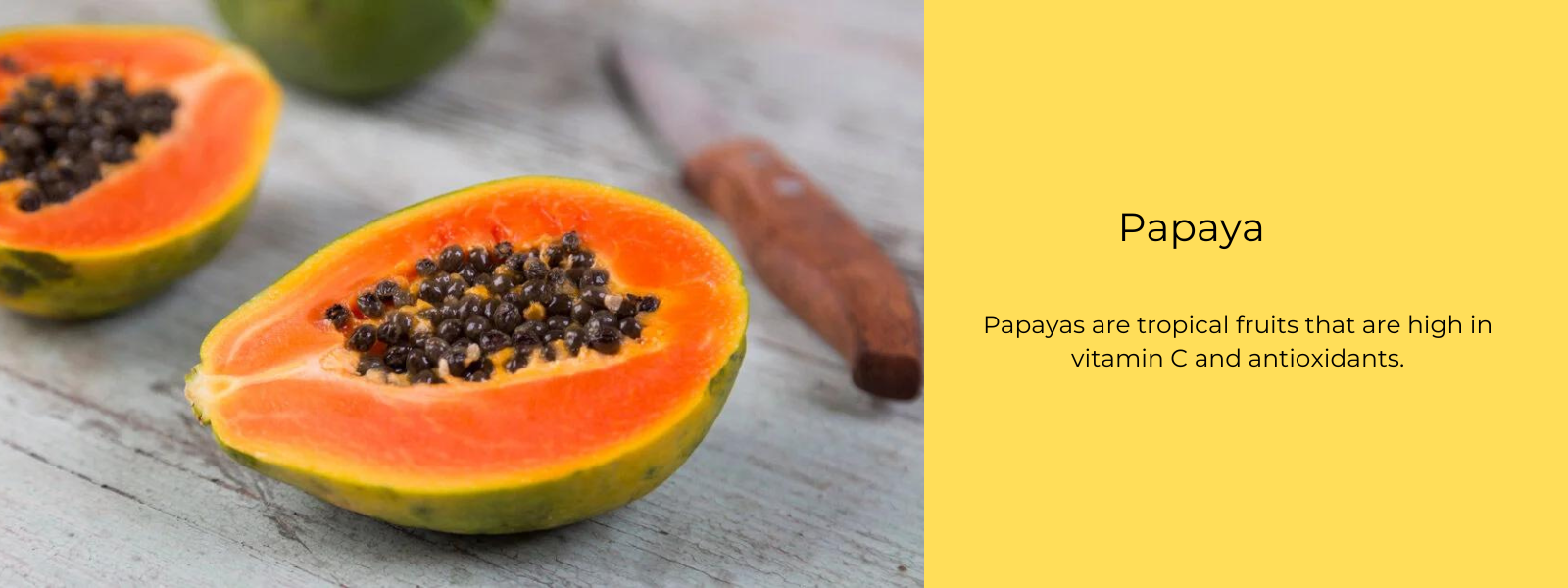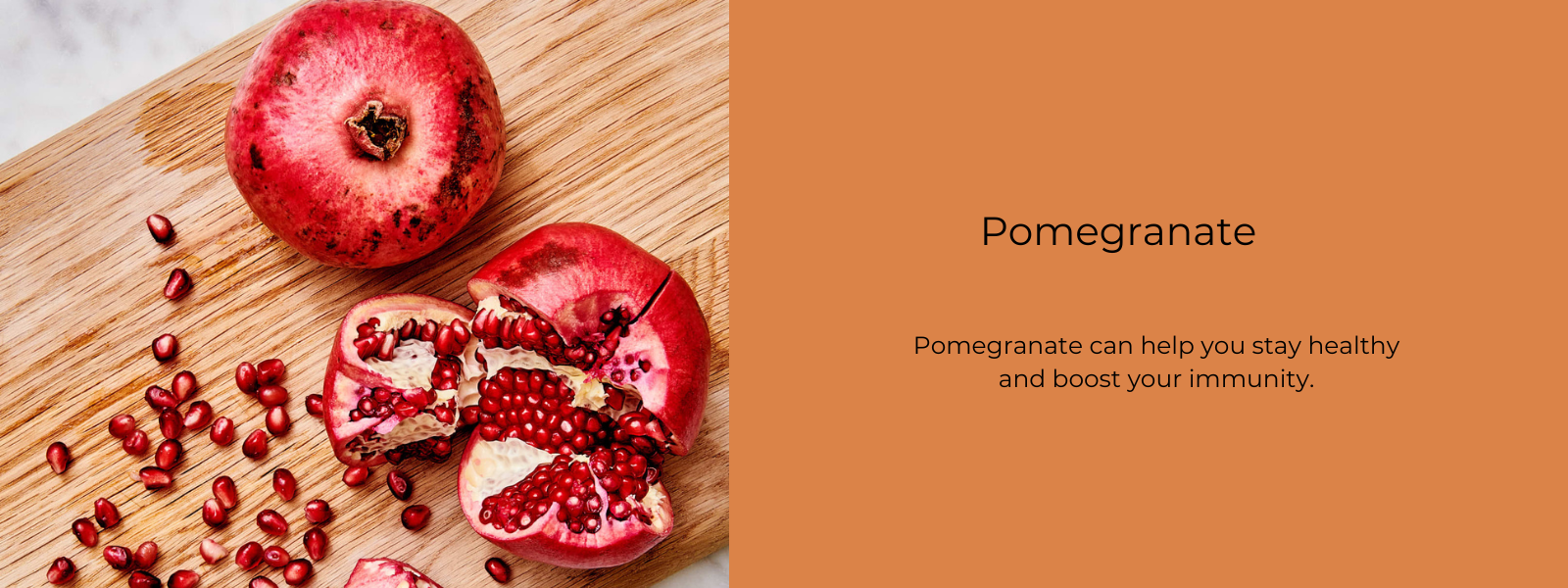Custard apple, also known as "sitaphal," is a tropical fruit prized for its creamy texture and sweet flavor. Rich in vitamins, minerals, and antioxidants, it supports heart health, boosts immunity, and promotes digestion. This nutrient-dense fruit is not only delicious but also a versatile ingredient in smoothies, desserts, and traditional recipes.
Custard apples come in different shapes, such as spheres, circles, irregular cones, and hearts. Sitafal's flesh is sweet, creamy, and grainy, and it has a lot of seeds. Most of the time, custard apples are eaten raw and served cold.
Table of Contents
What is custard apple?
Custard apple is a sweet, fleshy fruit that is low in calories and very filling. One gramme of custard apple only has one calorie of energy, which makes it a great addition to plans for losing weight. It is also known as sugar apple, sweet sop, Sitaphal, and Sarifa. It is full of vitamin C and can help keep blood pressure stable.
In some parts of the world, it is considered a treat because its flesh is very sweet and soft. Custard apple fruit has a lot of sugar, protein, calcium, phosphorus, and iron. It also has a lot of carbs. It can also be a good choice for people who can't eat dairy because they can't digest it.
Other names of custard apple:
Annona squamosa, Jaaniphal, Aatupy, Gangaatr, Krishanphal, Sharifah, Sitaphal, Jaankiphal, Sitapholo, Aato, Katal, At, Gaatr, Krishbeej, Anusa, Sitaphalam, Sithappazaham, Ata, Saripha, Aatichakki, Attichakka, Atta, Gandagaramu, Sirpa, Sithapazham, Sugar apple, Kaj
Taste of custard apple:
Even though the name of this fruit includes the word "apple," it is nothing like an apple. Custard apples have a sweet and velvety smooth taste. However, if they are left out for too long before eating, they may develop a fermented flavor.
Nutritional value of custard apple:
Custard apples have a lot of the vitamins and minerals that the body needs. So, let's look at the table below to find out what the fruit does for your body.
Calories – 94
Total Fat – 0.0 gms
Carbohydrates – 23.6 gms
Proteins – 2.1 gms
Dietary Fiber – 4.4 gms
Best way to consume custard apple:
It's best to eat it raw and fresh, but you can also use it as a seasoning or dressing. You can put the pulp on top of ice cream or mix it with other fruits to make a salad.
Custard apple for skin:
Eating custard apple has been shown to increase the amount of collagen the body makes. Collagen is a protein that makes the skin flexible, full, and smooth. As we get older, our bodies make less collagen. This makes lines appear on the skin, makes the skin sag, and makes the skin wrinkled. So, it thickens the skin and makes more collagen, which makes fine lines and wrinkles less noticeable. Also, the compounds in custard apple slow down collagen's breakdown, which makes the skin more flexible.
Custard apple or sitaphal during cold
The name sitaphal comes from two Hindi words: "sheet," which means "cold," and "phal," which means "fruit." This suggests that the fruit is cold and potent. Since the fruit makes the body feel cooler, you shouldn't eat it when you have a cold.
Health benefits of custard apple:
- Custard apple has a lot of fibre, which helps us digest food, keeps us from getting constipated, and cleans out our bodies.
- Sitafal has a lot of antioxidants like flavonoids, phenolic compounds, kaurenoic acid, and vitamin C that fight free radicals that are linked to chronic diseases, cancer, and heart disease. Antioxidants (like lutein and carotenoid) also protect our eyes from oxidative damage and lower the risk of age-related macular degeneration, vision loss, and cataracts.
- Cherimoya is full of nutrients, like potassium and magnesium, which lower blood pressure by opening up blood vessels that are too narrow. We all know that having high blood pressure makes you more likely to get heart disease or a stroke.
- Sitafal has a lot of Vitamin B6, which improves our mood and makes us feel less sad or depressed. So, when you're feeling down, eat it to feel better.
- Flavonoids in custard apples (catechin, epicatechin, and epigallocatechin) stop cancer cells from growing. They also make it less likely that you will get cancers like breast, stomach, and colon cancer.
- Cherimoya has a number of anti-inflammatory chemicals in it, like kaurenoic acid and flavonoids. These chemicals have anti-inflammatory effects and lower the risk of a number of chronic inflammatory conditions.
- Sitafal has a lot of vitamin C, which helps our bodies fight off infections and diseases by making our immune systems stronger.
- Custard apple is good for your health in many ways, but it also has a small amount of toxic chemicals (annonacin) that can hurt your brain and nervous system. This poison is mostly in the skin and seeds of the fruit, so take them out before eating.
- Cherimoya is a sweet fruit that enhances the flavor of fruit salads, smoothies, soups, cakes, flavored yogurt, and oatmeal. Add it to your menu and savor its delightful sweet and creamy taste!
Meyer Merlot Non-Stick Kadai/Wok with Lid, 26cm
FAQs on Custard Apple:
Q: Can I have a custard apple every day?
A: Custard apples are packed with nutrients like calcium, vitamin C, vitamin A, vitamin B6, magnesium, iron, potassium, copper, and fiber, making them a healthy addition to your daily diet. Their fiber and copper content support a healthy digestive system and help prevent constipation. Vitamins A and C improve vision, while their ability to regulate blood pressure promotes heart health. Vitamin A also enhances skin glow and hair shine, and vitamin B6 is beneficial for individuals with asthma. Additionally, custard apples are known to help people with arthritis, diabetes, or iron deficiency, making them a versatile and nutritious fruit to enjoy daily.
Q: Can diabetics eat custard apples?
A: Custard apple has a creamy, sweet taste and is full of magnesium, fibre, Vitamin C, and other flavonoids. It is good for people with diabetes because it has a low Glycemic Index (GI) and doesn't make your blood sugar go up.
Q: Are custard apple seeds poisonous?
A: Amygdalin, which is found in custard apple seeds, releases cyanide when it comes into contact with digestive enzymes. Amygdalin has cyanide and sugar in it, which, when eaten, turn into hydrogen cyanide in the body (HCN). You can get sick from this cyanide.
Q: Can you drink water immediately after having custard apple?
A: After eating a custard apple, you shouldn't drink water right away. Custard apples have a lot of fibre, vitamin C, vitamin A, vitamin B6, and different antioxidants. When you drink water after eating, it can mess up the way digestive juices and enzymes work, which can lead to stomach problems.
Q: Is custard apple same as sugar apple?
A: Yes, custard apple and sugar apple are both the same fruit. In different parts of the world, this fruit is called things like ox-heart, buddha's head, and cherimoya. It may also look a little bit different.
Q: Can we eat bananas and custard apples together?
A: Yes, you can eat custard apple and banana together.
Q: Are custard apples good for your skin?
A: Eating a custard apple has been shown to increase the amount of collagen the body makes. Collagen is a protein that makes the skin flexible, full, and smooth.
Q: When shouldn't we eat custard apples?
A: If you're prone to getting sick, you shouldn't eat a custard apple at night. It cools the body, so if you have a cold or cough, it could make your symptoms worse if you eat or drink it. People with stomach problems should also stay away from custard apples. It has a lot of fibre, which can lead to stomach pain, diarrhoea, gas, bloating, etc.















Leave a comment